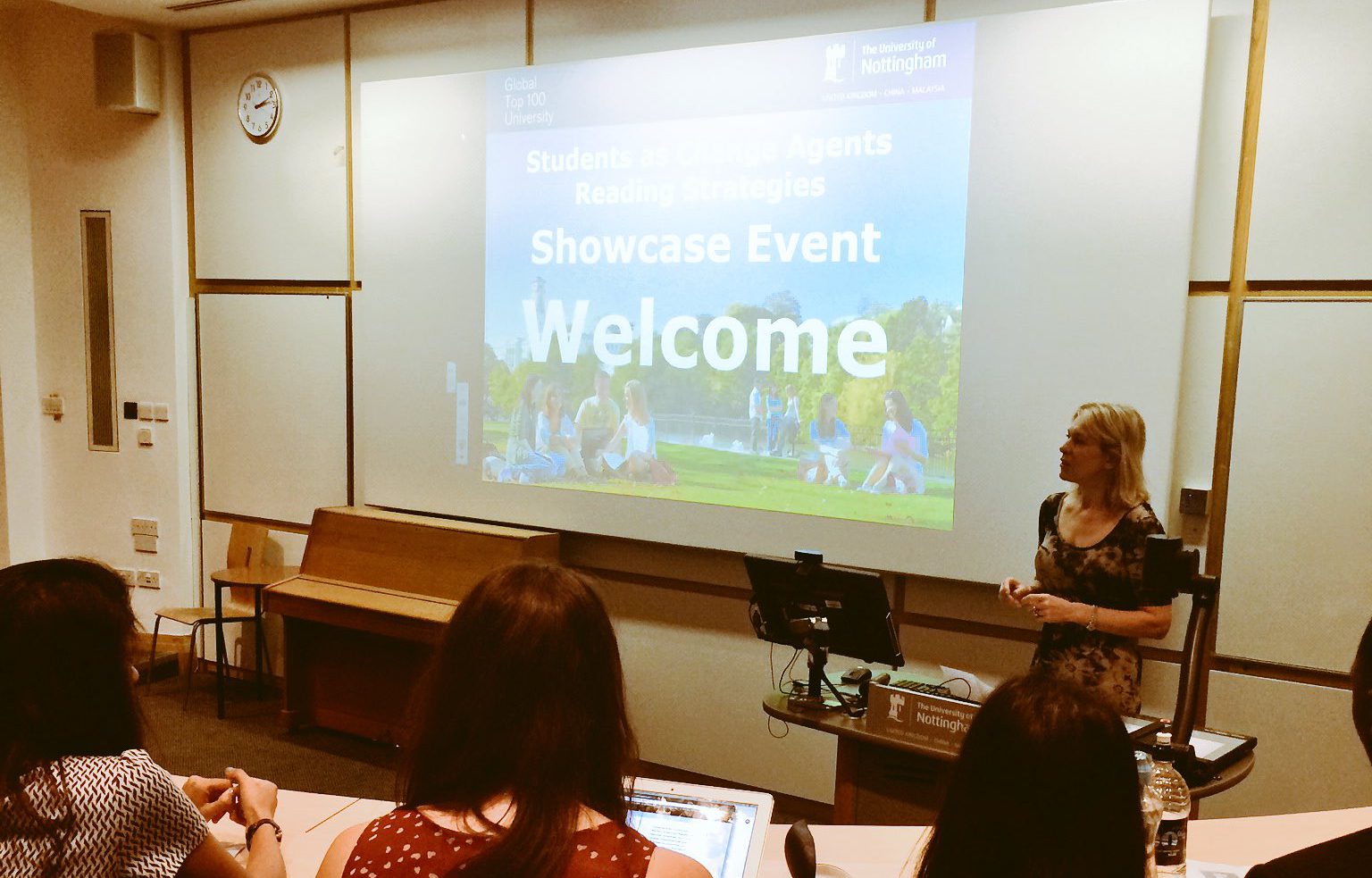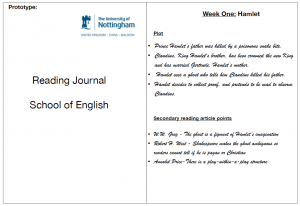
August 30, 2017, by Ian Kingsbury
Helping students to prioritise their reading
The last in a series of three blogs looking at themes arising from ‘Reading strategies’ projects commissioned by LRLR under the Students as Change Agents (SACA) programme.
On Thursday 15 June an invited audience – including Professor Sarah O’Hara (PVC for Education and the Student Experience) and Beth Massey (outgoing Students’ Union Education Officer) – assembled at the Arts Centre, University Park, for a ‘Reading strategies showcase’.
Students teams from Psychology, English, Politics and Engineering presented their findings from projects commissioned last year by Libraries, Research and Learning Resources (LRLR) to consider discipline specific challenges and solutions associated with course reading. A key focus of all the projects was to understand the challenges around reading from the students’ perspective.
Academic reading ability

Reading Journal resource for English students – just one of several inspired interventions produced by the SACA students.
The ambitious team from the School of English gave themselves the challenge of understanding the true reading situation of their peers. Using questionnaire and focus group methodologies they explored students’ reading experience, barriers to successful reading, and the strategies that could help students improve their reading efficiency.
Encouragingly, 89% of the students surveyed believed that completing all their required weekly reading helped their understanding in lectures and seminars. However, it was not always possible for students to complete all their set reading with many feeling concerned about the time pressures associated with a high reading load. The team concluded that helping students improve the efficiency with which they read could have a significant positive impact on their peers.
Running with this idea the team produced a Reading Journal – a templated tool providing a structured approach to reading which incorporates several of the ideas they gathered during their project. The journal received high praise from the audience with several of alumni in the room wishing such a resource had been available during their degree!
The project team observed, however, that improving reading efficiency was not just about helping students employ new strategies and techniques. There are ways that academics and the wider University can also help. Finding ways to help students prioritise their reading would benefit 8 out of 10 of the survey respondents, whereas 6 out of 10 respondents believe that having better access to resources in the right format at the right time would save students valuable time. For many, the ‘right format’ is electronic PDFs highlighting the importance of academic schools and LRLR working together to digitise resources through the scanning service.
Strategies not spoons
Professor Sarah Speight, academic lead for the Transforming Teaching Programme, closed the event by observing that we all have a lot of assumptions about student reading strategies, but we need to be more explicit in the help and direction we provide. Sarah reinforced that, far from spoon-feeding students, the projects have highlighted a need to better equip them with the strategies, resources and support they need to succeed in their studies.
SACA is open to all students, across all years and campuses. Through projects, SACA enables students to make a real impact on teaching and learning. As well as the opportunity to make a positive change that enhances the student experience, SACA students also develop valuable skills for employability, such as project management, communication and problem-solving.
The University’s recent success in attaining Gold status in the new Teaching Excellence Framework (TEF) was, in part, thanks to SACA which received special mention from the TEF awarding panel.
Be the change you want to see
If you are interested in becoming involved in the Students as Change Agents Programme, see their website for more information. You can also email them directly at changeagents@nottingham.ac.uk or follow them on Twitter @UoNChangeAgents.
Useful links
- Helping students develop a reading strategy – the first in this blog series
- Reading strategies project delivers guide “for students, by students” – the second in this blog series

Making effective reading strategies is very important in this new era of information. There are distractions all around and many students find it difficult to focus on reading. Social media has descended from computers on to mobile phones and this easy access has reduced concentration of students. Always increasing stack of books-to-be-read does not help either. It was a good read. Thank you!